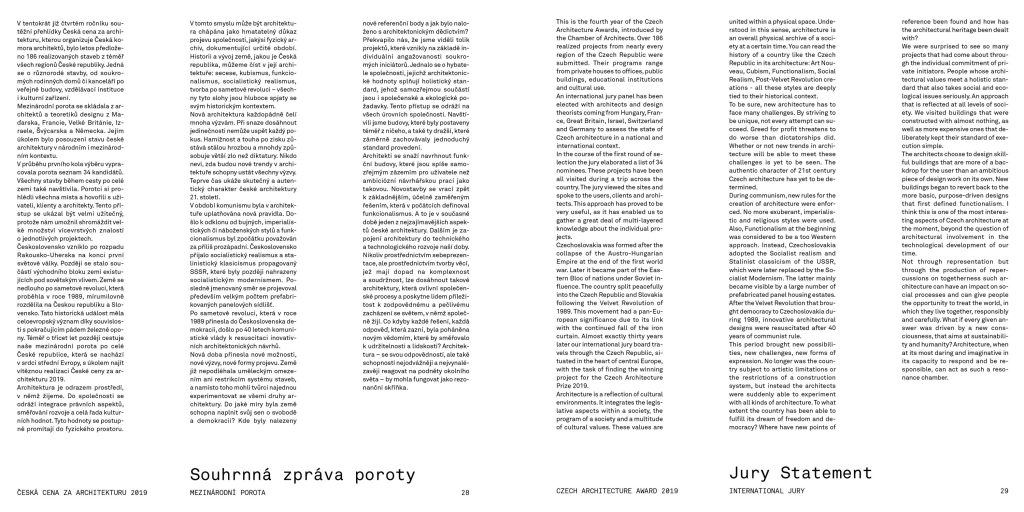Uhlenhorst Estate, Berlin
‘densification’, ‘affordable housing’ and ‘special types of housing’
New space programs (“Ergänzer”) for individual as well as communal living are integrated into a ‘Zeilenbau’-estate from the 1960s. Mini apartments, residential groups, office spaces and care rooms create holistic living spaces through the connection with the existing monofunctional housing estate. In addition, there are so-called ‘green rows’ (“Grünzeilen”), which accommodate a multifunctional space, guest houses, stores, workshops, kitchens, playgrounds and gardens.
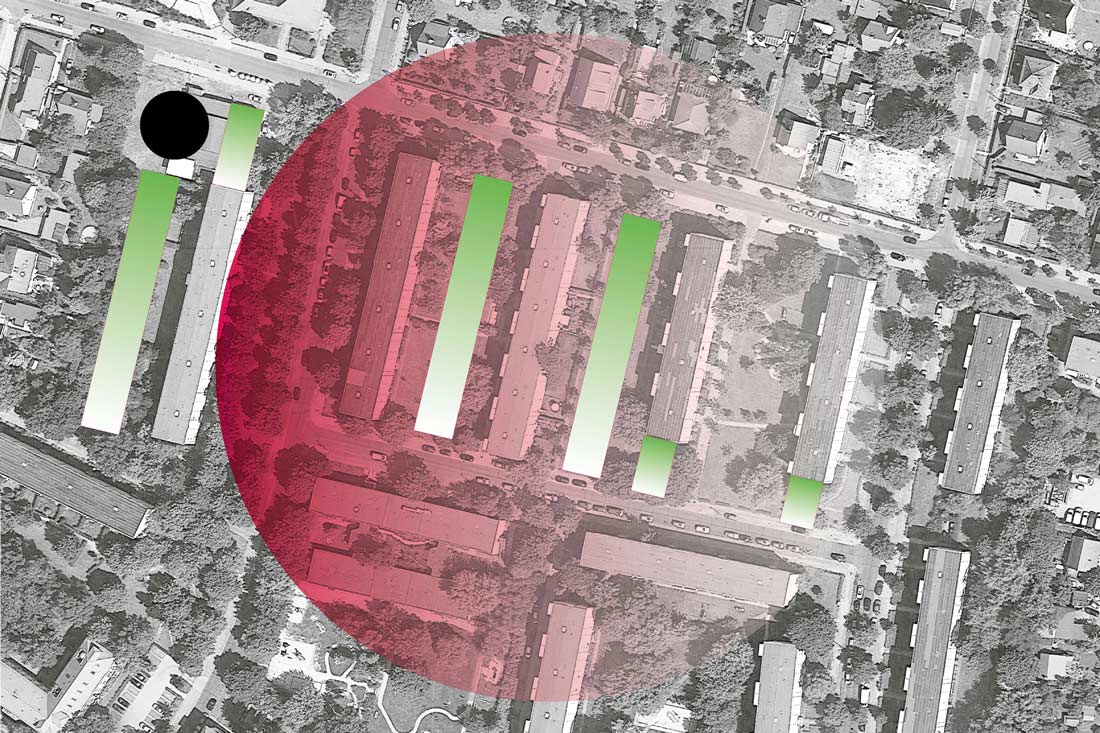
‘Zeilenbau’-estate with supplement of requirements – creation of neighbourhood centers
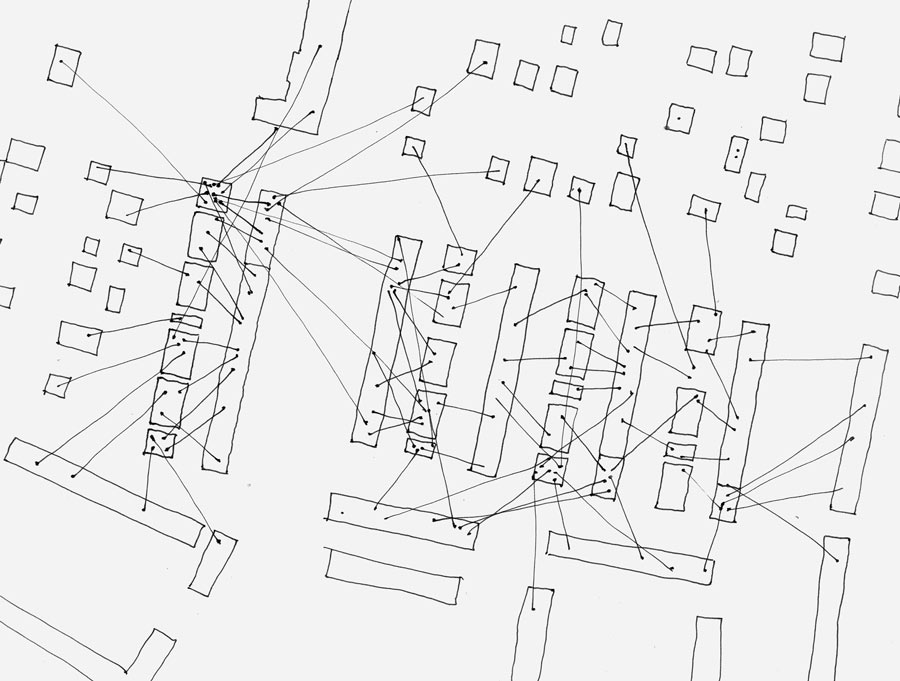
Connections between the outsourced residential functions within the neighbourhood
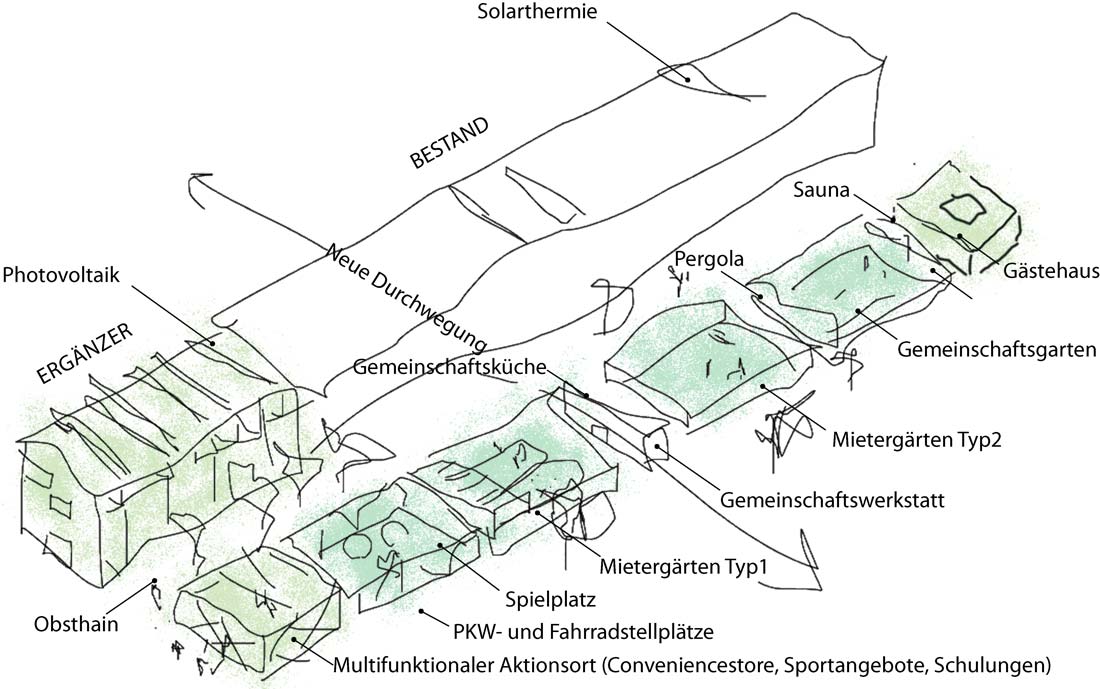
‘Housing row’ (“Wohnzeile”) and ‘green row’ (“Grünzeile”)
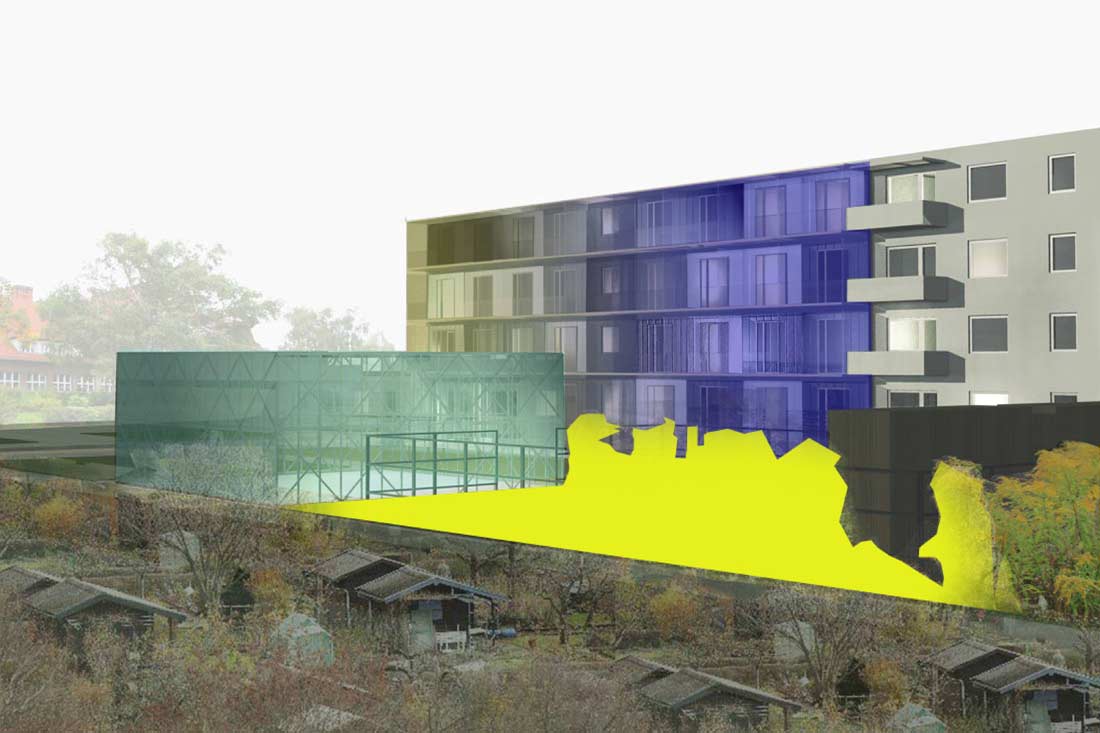
New composition of the existing estate: housing, community, garden
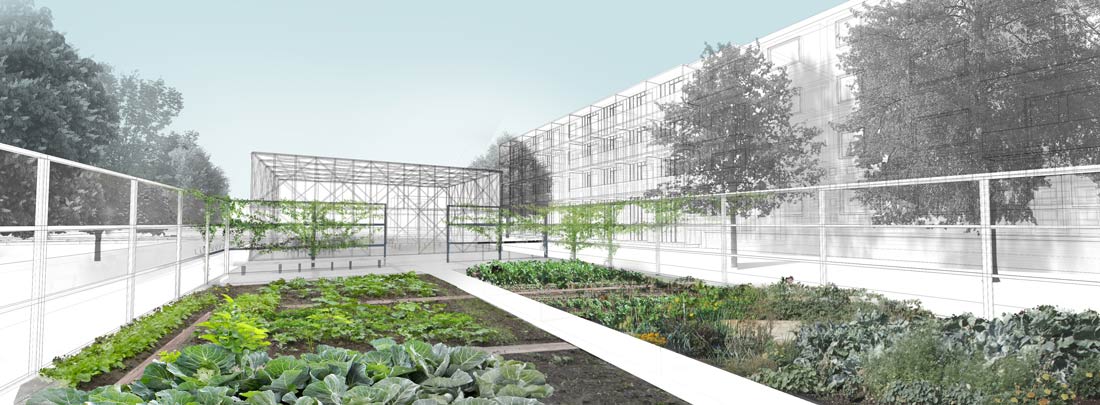
‘green row’: Tenant gardens for an active residential community and self-sufficiency
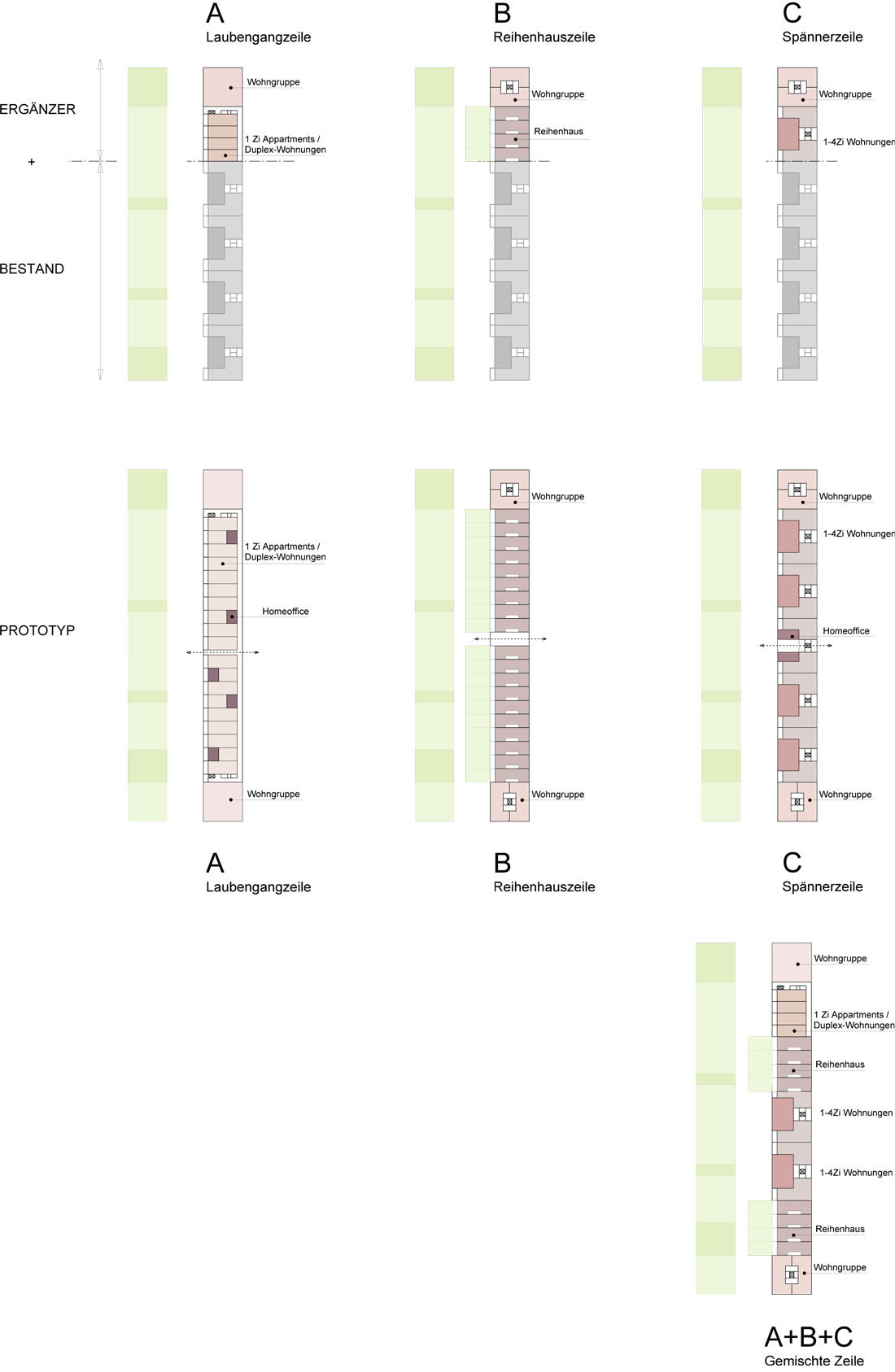
‘Zeilenbau’- prototypes
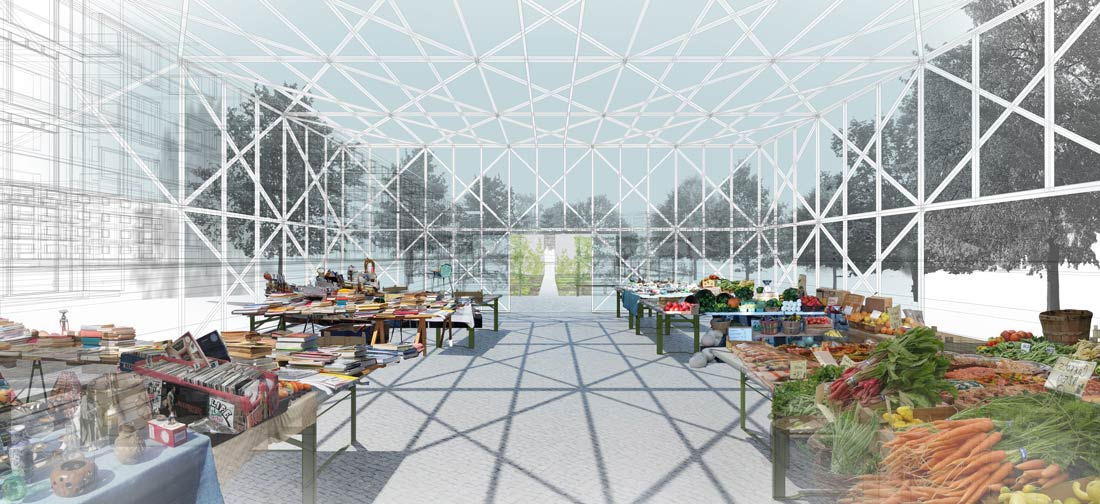
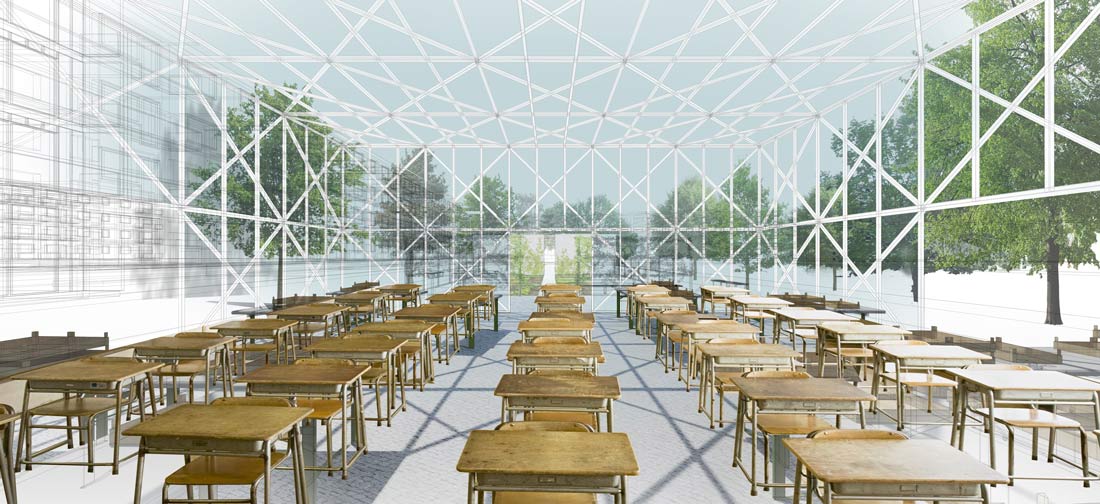
Possible use of the multifunctional space
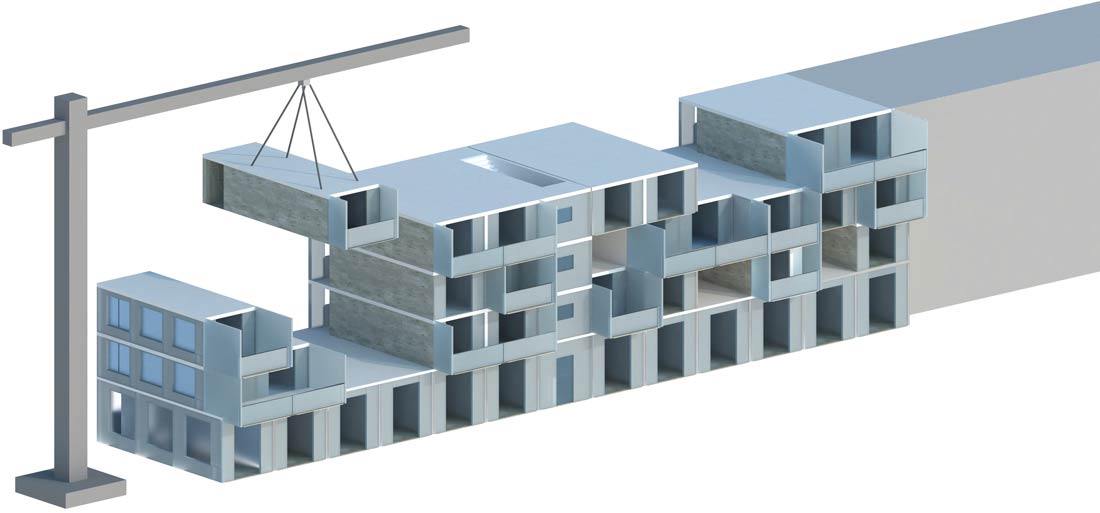
Wooden modular construction for supplementing the ‘Zeilenbau’
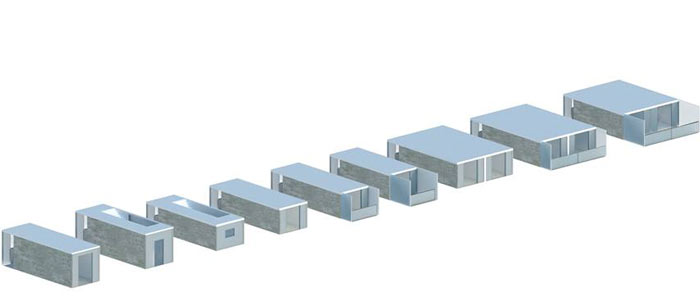
Living and working typologies
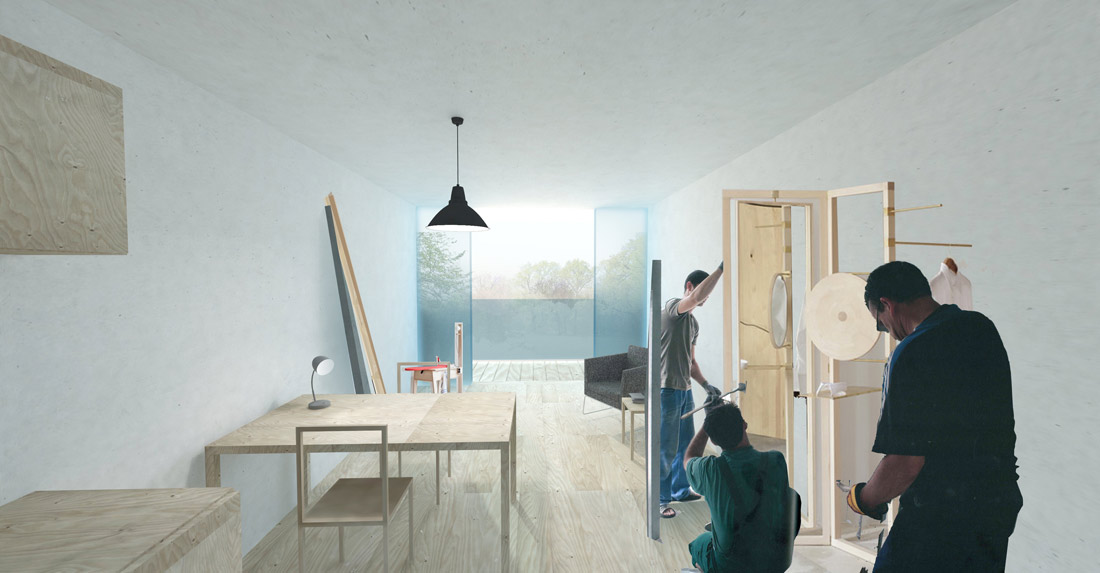 Minimized flats (Micro-apartment)
Minimized flats (Micro-apartment)
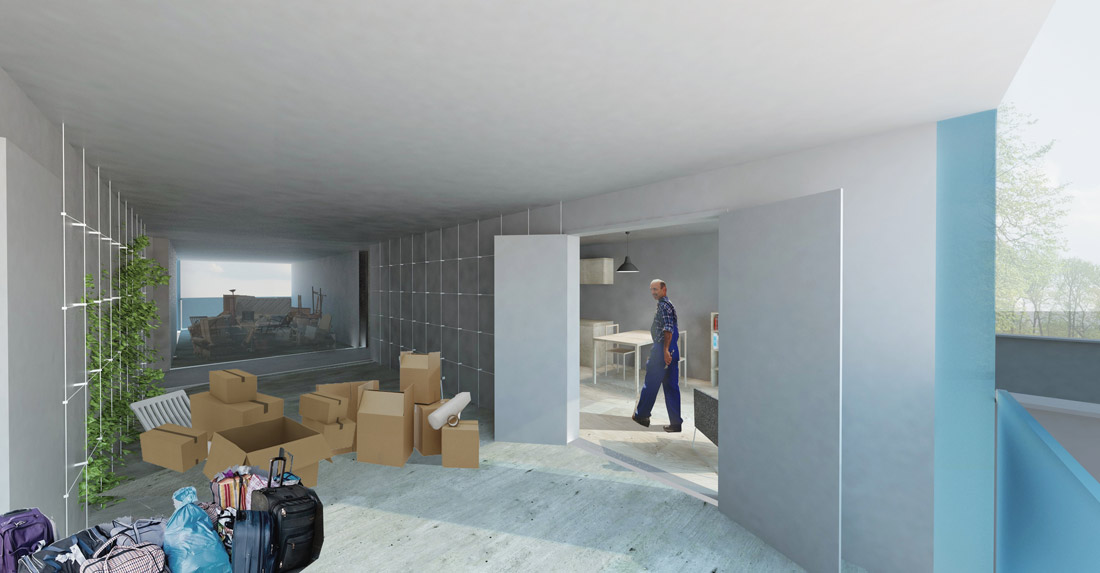 Maximized common areas (residential terrace)
Maximized common areas (residential terrace)
| Program | Development of sustainable residential concepts in the city |
| Status | Study, ideas-competition as workshop approach, exhibition at the German Center for Architecture (DAZ), Berlin |
| Location | Uhlenhorst settlement, Wongrowitzer Steig, Berlin-Köpenick, Germany |
| Team | IMKEWOELK + partners in corporation with Prof. Martin Prominski, Landscape architecture, Hannover |
| Client | Federal state of Berlin, represented by the Senate Administration for Urban Development |
| Area | Survey site: 21.000 m2 Building prototype: TSA: 1490 m2, USA: 1080 m2 Costs of construction: 1.600.000 EUR (KG 300-500) |
| Construction | Modular wooden structure |
| Services | Program and location analyses, strategic development, artistic concept, technical concept, design planning, visualisation |
| Date | 2014 / 2019 |
TOP ↑

